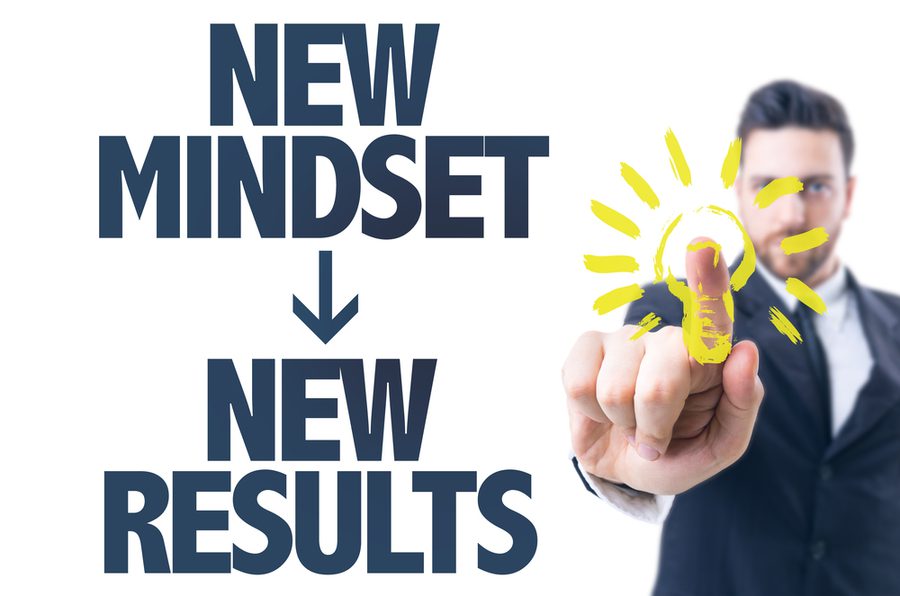Note: This information is from 2020 but much has changed since then. Please be sure to discuss your unique financial situation with your McKinley Carter Advisor or another trusted professional.

The day-to-day grind distracts nonprofit leaders from their mission's primary focus. If you want to make positive changes, try assessing your mindset.
As a nonprofit leader, you are focused on so many factors that contribute to your organization fulfilling its mission: an engaged and happy staff, a steady stream of unearned revenue, a positive image in the community, and a strong strategic plan for the future. However, sometimes the day-to-day grind can get in the way and cause you to lose that focus. So, how can you effectively re-focus and discover new ways to fulfill your organization's mission that will potentially make a greater impact and give you a personal sense of fulfillment?
The first step is to assess your mindset. Have you been limited because you are operating under a fixed mindset? Are you willing to adopt a growth mindset to breathe new life into your organization?
In her book Mindset: The New Psychology of Success, author Carol Dweck explores the power of mindset. Dweck says if you have a fixed mindset, you believe that no amount of effort or learning can influence your talent or intelligence; your efforts are essentially fruitless. Consequently, you are unlikely to embrace change due to the fear of failure.
However, if you have a growth mindset, you believe the opposite — that effort will lead to new learning and effect positive change. Therefore, you will embrace challenges to improve performance. Sometimes there are bumps along the way, but that's okay because you are determined to achieve the best possible outcome.
If you believe you've been operating under a fixed mindset and are willing to embrace a growth mindset, there are some ways this thinking can make a positive impact on your organization.
- Re-engagement of your board. Perhaps one of the simplest ways to accomplish this is to have each board member assess his/her mindset. Through Dweck’s book and other available resources, there are many ways to assess one’s mindset and coach people on the power of a growth mindset. If your board is heavy on individuals with a fixed mindset, it might be time to conduct board evaluations, revisit term limits, assess your nomination process (recruit candidates with an entrepreneurial spirit), and improve your board orientation program.
- Continuous program development. Has the organization conducted a thorough program assessment recently? If not, it's time. An important aspect of this process is to eliminate 'loss leaders.' Otherwise, are your programs meeting the current needs of your constituents? If not, take the time and encourage staff time to develop new programs. Within the program development phase, be sure to address purpose, target population, cost, outcomes anticipated, and methods to evaluate success. These tactics could also apply to your fundraising programs.
- Strategic Planning. If your continuous programming and fundraising development efforts are really going to be overhauled, maybe it's time for a new strategic plan. However, it would be in the organization's best interest to approach this planning with a new mindset. I suggest scrapping the traditional practice of conducting a SWOT and the development of goals and objectives that are often too tactical in nature and easily accomplished. Instead, develop a bold plan with an exciting vision and commit to high standards that will lead to success.
- Commit to personal and professional development. If you are still reading this, you've already taken the first step to personal development. If you are committed to effective organizational change, you also need to share and support the concept of mindset with your team. Some helpful resources around Dweck's concept are listed below. However, ongoing personal and professional development is a must and can be accomplished by (1) allocating time and resources for development, (2) encouraging the declaration of personal and professional development goals among your team (and discussing them during performance evaluations), and (3) celebrating personal and professional development accomplishments within your organization.
While the suggestions above may seem overwhelming, finding new ways to fulfill an organization's mission can start small. Choose one initiative to begin with, approach it with a new mindset, and be open to change. Afterall...
“The greatest danger in times of turbulence is not the turbulence; it is to act with yesterday’s logic.” - Peter Drucker
Resources:
